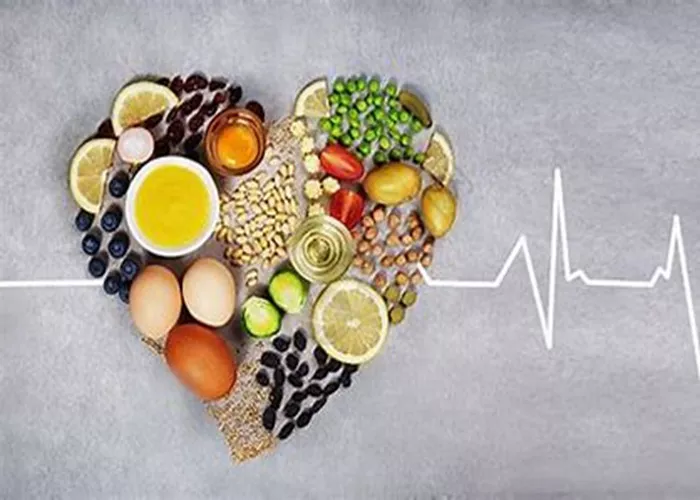As we age, our metabolism gradually slows down, making it more challenging to maintain a healthy weight. This decline in metabolism is a natural part of aging, but it doesn’t mean we have to accept it without a fight. In this article, we’ll explore how to increase metabolism as you age, using simple, science-backed strategies that anyone can incorporate into their daily routine.
Understanding Metabolism
Before we dive into the strategies, it’s essential to understand what metabolism is and how it works. Metabolism refers to the process by which our bodies convert the food we eat into energy. This energy is used to fuel our daily activities, including exercise, digestion, and even sleep.
Our metabolism is influenced by several factors, including age, gender, genetics, and lifestyle choices. As we age, our resting metabolic rate (RMR) tends to decrease, which means we burn fewer calories at rest. This decline is partially due to muscle loss, as muscle tissue is more metabolically active than fat tissue.
Why Metabolism Slows Down with Age
There are several reasons why metabolism slows down as we age:
Muscle Loss: Starting from the age of 25-35, if you don’t engage in regular exercise, your muscle mass gradually decreases. Muscle tissue burns more calories at rest compared to fat tissue, so this muscle loss contributes to a slower metabolism.
Hormonal Changes: Hormonal changes also play a role in the decline of metabolism. For example, as we age, our thyroid gland may become less efficient at producing thyroid hormones, which regulate metabolism.
Reduced Activity Levels: Many people become less active as they age, leading to a decrease in calorie expenditure.
Strategies to Increase Metabolism
Now that we understand why metabolism slows down with age, let’s explore some strategies to combat this decline.
Build and Maintain Muscle Mass
Strength Training: Engaging in strength training exercises, such as weightlifting or bodyweight exercises, can help build and maintain muscle mass. Aim for at least two strength training sessions per week, targeting all major muscle groups.
Protein Intake: Protein is essential for muscle repair and growth. Incorporate lean protein sources, such as chicken, fish, tofu, and legumes, into your daily diet.
Stay Active
Cardiovascular Exercise: Cardiovascular exercises, such as walking, jogging, swimming, or cycling, increase heart rate and burn calories. Aim for at least 150 minutes of moderate-intensity aerobic activity or 75 minutes of vigorous-intensity activity per week.
NEAT (Non-Exercise Activity Thermogenesis): NEAT refers to the calories burned through daily activities like walking, fidgeting, and even standing. Increase your NEAT by taking the stairs instead of the elevator, parking farther away from the store, or taking frequent breaks to stretch and move around during work.
Eat a Balanced Diet
Whole Foods: Focus on eating whole, unprocessed foods, such as fruits, vegetables, whole grains, and lean proteins. These foods are packed with nutrients and fiber, which help keep you feeling full and satisfied.
Small, Frequent Meals: Eating smaller, more frequent meals can help keep your metabolism revved up. Aim for 4-5 small meals or snacks per day, spacing them out evenly throughout the day.
Stay Hydrated
Water Intake: Proper hydration is crucial for maintaining a healthy metabolism. Aim for at least 8 cups (64 ounces) of water per day, and increase your intake if you’re active or live in a hot climate.
Herbal Teas and Lemon Water: Herbal teas and lemon water can also be hydrating and may have additional health benefits, such as boosting your immune system.
Get Enough Sleep
Sleep Quality: Lack of sleep can negatively impact your metabolism. Aim for 7-9 hours of quality sleep per night to support your overall health and well-being.
Sleep Hygiene: Practice good sleep hygiene by establishing a regular sleep schedule, creating a restful environment, and avoiding screens before bedtime.
Manage Stress
Stress Reduction: Chronic stress can disrupt your metabolism and contribute to weight gain. Incorporate stress-reducing activities into your daily routine, such as mindfulness, meditation, or yoga.
Healthy Coping Mechanisms: Avoid unhealthy coping mechanisms, such as smoking or excessive alcohol consumption, which can further harm your metabolism.
Consider Supplements
Vitamin D and Calcium: Studies suggest that vitamin D and calcium may play a role in metabolism. Consider incorporating foods rich in these nutrients, such as fatty fish, fortified dairy products, and leafy greens, into your diet. If you’re unable to meet your needs through diet alone, consider taking a supplement.
Probiotics: A healthy gut microbiome is essential for overall health, including metabolism. Incorporate probiotic-rich foods, such as yogurt, kefir, and fermented vegetables, into your diet, or consider taking a probiotic supplement.
Conclusion
Increasing metabolism as you age is a multi-faceted approach that involves building and maintaining muscle mass, staying active, eating a balanced diet, staying hydrated, getting enough sleep, managing stress, and considering supplements. By incorporating these strategies into your daily routine, you can combat the natural decline in metabolism that occurs with age and maintain a healthy weight.
Remember, the key to successful weight management is consistency. Small, sustainable changes over time will lead to significant results. So, don’t get discouraged if you don’t see immediate results. Stay focused on your goals, and trust the process.
In summary, while aging may slow down our metabolism, it doesn’t mean we have to accept weight gain as an inevitable part of growing older. By making simple, science-backed changes to our diet and lifestyle, we can increase our metabolism and maintain a healthy weight for years to come.
Related topic:


